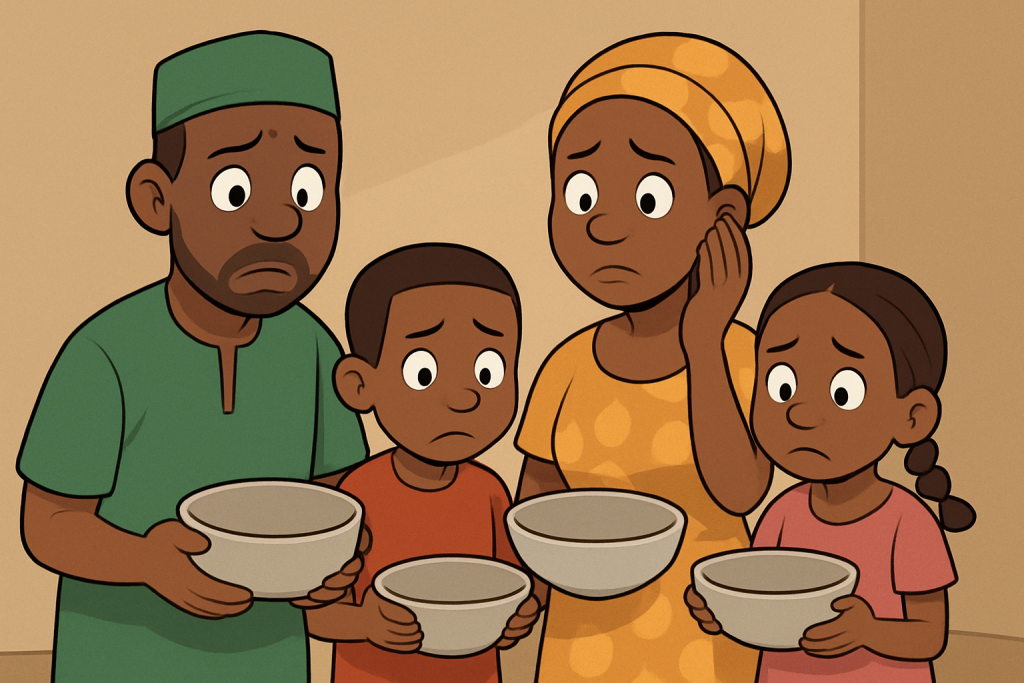Nigeria is facing a worsening hunger crisis as international aid cuts and rising food prices push millions of households deeper into food insecurity. According to recent reports, humanitarian organizations have been forced to scale back their support, leaving many families vulnerable and struggling to survive.
Why Hunger Is Increasing
Experts note that multiple factors are fueling this crisis. Inflation continues to drive up the cost of basic food items such as rice, beans, and maize, making them unaffordable for many low-income households. In addition, ongoing conflicts in some northern states and the effects of climate change, such as floods and droughts, have disrupted farming and food production.
A report from humanitarian groups revealed that food assistance to vulnerable communities has been significantly reduced due to funding shortages. This has left thousands of families in regions like Borno, Yobe, and Adamawa states without the critical support they previously relied on.
Impact on Families
The consequences of these shortages are heartbreaking. Many parents are skipping meals so their children can eat, while others survive on one meal a day. Malnutrition, especially among children under five, is on the rise, putting their health and future at serious risk.
Speaking about the crisis, a mother in Maiduguri explained: “Before, we received monthly food packages, but now the supplies have stopped. My children go to bed hungry some nights.”
Government and Community Response
The Nigerian government has acknowledged the growing challenge and promised to strengthen local food production through agricultural support programs. However, aid groups emphasize that more urgent action is needed to bridge the gap in the short term.
Community leaders and non-governmental organizations have also stepped in with food drives and donations, but these efforts remain too small compared to the scale of the crisis.
The Bigger Picture
Nigeria is Africa’s most populous country, and experts warn that if the hunger crisis continues unchecked, it could affect social stability and economic growth. Addressing food insecurity requires not only emergency aid but also long-term investment in agriculture, infrastructure, and poverty reduction programs.
The current hunger situation highlights the urgent need for both international support and local solutions. Without swift action, millions of Nigerians risk slipping further into poverty and malnutrition.



